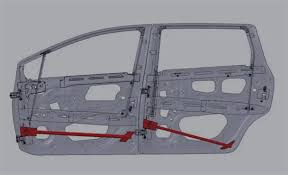
The Importance of Automotive Parts Testing
Automotive parts testing is a critical aspect of ensuring the safety, reliability, and efficiency of vehicles. As the automotive industry continues to evolve with advancements in technology, the demand for high-quality components that meet rigorous performance standards has never been more essential. This article explores the various facets of automotive parts testing and its significance in the manufacturing process.
To begin with, automotive parts testing encompasses a wide range of evaluations designed to assess the durability, performance, and safety of vehicle components
. These tests are essential in identifying potential issues that could lead to vehicle failures, impacting not just the vehicle's functionality but also the safety of its occupants. Common types of testing include fatigue testing, environmental testing, and performance testing, each tailored to simulate real-world conditions that components will face during their lifespan.One primary goal of automotive parts testing is regulatory compliance. The automotive industry is subject to strict regulations and standards set forth by organizations such as the National Highway Traffic Safety Administration (NHTSA) and the International Organization for Standardization (ISO). Manufacturers must demonstrate that their components meet these standards to ensure vehicles are safe for public use. Testing not only helps in compliance but also builds consumer trust, as buyers are more likely to choose vehicles from manufacturers known for rigorous quality assurance processes.

Moreover, the testing phase can significantly reduce costs associated with warranty claims and recalls. By identifying defects early in the production process, manufacturers can rectify issues before they reach consumers. This proactive approach can prevent costly recalls and enhance the manufacturer's reputation for quality. In the long run, investing in comprehensive testing can lead to improved product reliability, customer satisfaction, and brand loyalty.
As the automotive industry shifts towards electric and autonomous vehicles, the complexity of parts and systems is increasing. New technologies require innovative testing methods to ensure they perform as expected under various conditions. Advanced simulation tools, real-time data analytics, and artificial intelligence are becoming integral to the testing process, allowing manufacturers to assess performance more accurately and efficiently.
In conclusion, automotive parts testing is essential for ensuring that components meet safety and performance standards. With the ongoing advancements in technology and the increasing complexity of automotive systems, effective testing methods will continue to play a vital role in the industry's future. Prioritizing quality through rigorous testing not only protects consumers but also enhances the overall reputation of manufacturers in a competitive market.